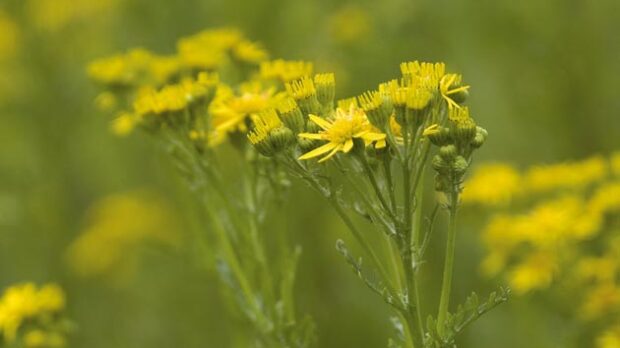Animal welfare organisations warn that horse owners are putting their horses at risk by remaining apathetic to the dangers of ragwort, despite more than 1,000 horse deaths from the weed each year.
According to the National Equine Welfare Council (NEWC), Britain is in the grip of the worst plague of ragwort for more than 20 years, in spite of last year’s introduction of the Ragwort Control Act. But getting the critical message of the dangers of the killer yellow weed across is still a massive challenge to vets and welfare bodies.
“Ragwort is a thug — there’s no other weed like it,” said ragwort expert, Prof Derek Knottenbelt from Liverpool University. “It is the most hideous stuff in the world, bar none.”
Ragwort wreaks havoc in a horse’s liver, resulting in the delayed onset of chronic, progressive liver failure. Build-up of toxins can result in brain disease, with dramatic side effects such as mania and blindness.
A small intake of the toxic weed over a long period is just as damaging as a large intake on a single occasion, according to Prof Knottenbelt, who says many horse owners still harbour the misconception that horses don’t eat ragwort.
NEWC executive secretary Elaine Cannon said many horse owners were simply numbed by year-on-year ragwort alarms. “But if they could see our video footage of how a horse suffers, banging its head into walls and stables, I think they would take a little more care,” she added.
Download the NEWC video now >>
Speaking on behalf of NEWC’s members, Cannon stressed widespread apathy presented a grave threat, given the number of deaths each year from the weed.
Prof Knottenbelt believes the figure of 1,000 deaths to be a conservative estimate. For the past two years he has led groundbreaking research into the development of an accurate blood test to specifically detect ragwort poisoning in live horses. It is hoped a test will be finalised by April 2006. But in the meantime, there is no way of detecting the lethal pyrrolizidine alkaloid toxin contained in ragwort.
|
||
 |
||


 Get up to 19 issues FREE
Get up to 19 issues FREE TO SUBSCRIBE
TO SUBSCRIBE 

